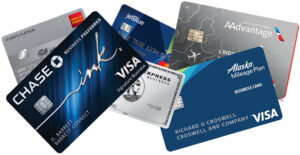Your expeditions extend beyond mere destinations; they present a chance to unlock valuable tax deductions, strategically designed to reduce your overall tax burden. From navigating airfare and accommodations to optimizing deductions on meals and transportation, a nuanced comprehension of the intricacies surrounding business travel tax deductions is paramount for maximizing your financial advantages.
Stepping into the realm of frequent business trips brings both excitement and challenges. Amidst the juggling act of coordinating schedules and maintaining productivity, it becomes imperative to acquaint yourself with the spectrum of tax deductions at your disposal. These deductions stand as potent tools, capable of significantly easing the financial strain inherently associated with the rigors of business travel.
Prepare to explore the various aspects of tax deductions for business travellers to help you make the most of your journeys.
1. Understand What Qualifies as Business Travel?
2. Identify the Eligible Expenses for Tax Deductions
3. Recognise How to Claim Tax Deductions as a Business Traveller
Recap
1. Understand What Qualifies as Business Travel?
When you’re on the road for work, be it for meetings, conferences, training sessions, or client visits, your primary goal should be business-related activities. Make personal activities secondary and incidental.
It’s on you to actively separate business from personal travel to avoid any hiccups in claiming tax deductions. Remember, only business expenses are fair game for deductions, so keep personal elements like entertainment, sightseeing, or non-business-related meals out of the mix. Stay on top of your record-keeping game, actively sorting your expenses, and you’ll be in prime position to make precise and compliant claims for tax relief.
2. Identify the Eligible Expenses for Tax Deductions
Transportation Costs
When it comes to transportation costs, there’s a range of deductible expenses up for grabs, spanning airfare, train tickets, and rental cars. Ensure you maintain a meticulous record-keeping system, holding onto receipts and itineraries for each transaction.
If you opt for using your own car, you’re not left out – you can deduct either mileage or actual expenses. Keep a comprehensive log of your business-related travels, noting down dates, destinations, and the purposes of each trip, ensuring you’re well-prepared come tax season.
Accommodation Expenses
When it comes to accommodation expenses, don’t miss out on potential deductions. Your hotel stays during business trips can be claimed as deductible expenses. To make the most of this benefit, ensure that your chosen accommodations are directly linked to your business activities. Keep a meticulous record of all your expenses, including receipts and detailed information about each stay, such as dates, locations, and the specific business purposes for each trip. This way, you’ll be well-equipped to maximize your deductions when tax time rolls around.
Meals and Entertainment
Delve into meals and entertainment deductions and you’ll find a valuable opportunity to ease your financial load. Business-related meals are usually 50% deductible, making it crucial to safeguard receipts and document the individuals present, along with the nature of the business discussed during each meal.
Extend this benefit to entertainment expenses, including client dinners or event tickets, which can be deductible if they are directly linked to your business activities. Keeping a detailed record of these expenses, specifying the purpose and participants involved, will not only ensure compliance but also enhance your ability to make the most of these deductions come tax season.
Business Calls and Internet
When it comes to handling business calls and internet expenses, seize the opportunity to optimize your deductions. If you utilize your personal phone for business calls, be aware that a portion of your phone expenses is potentially deductible. Keep meticulous records, noting the percentage of business use to accurately claim this deduction.
Additionally, if you rely on a consistent internet connection for work-related tasks during your business trip, the incurred internet fees are deductible. Ensure you keep track of these expenses, providing detailed documentation of the duration and purpose of your business-related internet usage, so you can effectively leverage these deductions when navigating tax season.
Business Meetings and Conferences
When it comes to business meetings and conferences, there’s a golden opportunity to maximize your tax deductions. Expenses associated with attending conferences, workshops, or business meetings are typically deductible. This encompasses not only registration fees but also travel and accommodation costs.
To ensure you make the most of these deductions, maintain a thorough record of all related expenses, including receipts and details on the purpose and location of each event. By meticulously documenting these aspects, you’ll be well-positioned to substantiate your claims and optimize your deductions when tax season arrives.
Incidental Expenses
Unlocking potential deductions, incidental expenses during your business trip can add up. These miscellaneous costs, including taxi fares, tips, and dry-cleaning, may be deductible, offering you a chance to alleviate the financial strain associated with your travels.
To harness these deductions effectively, meticulous record-keeping is key – save all receipts and make a note of the business purpose for each expense. By detailing the reasons behind these incidental costs, you’ll not only ensure compliance but also enhance your ability to optimize deductions during the tax season.
>>>PRO TIPS: The 10 Most Overlooked Tax Deductions
3. Recognise How to Claim Tax Deductions as a Business Traveller
As a business traveller, navigating the intricacies of tax deductions can significantly impact your financial bottom line. To ensure you maximize your eligible deductions, here’s how to claim tax deductions effectively:- Familiarize yourself with what constitutes business travel. This includes trips for meetings, conferences, client visits, and other activities directly related to your employment or business.
- Maintain meticulous records for all business-related expenses. Create a dedicated folder for each trip, including receipts, itineraries, and any relevant documents. Detailed records are essential for substantiating your deductions.
- Keep track of deductible transportation expenses such as airfare, train tickets, and rental cars. If you use your own car, maintain a log of business-related travel, noting dates, destinations, and purposes. This includes either mileage or actual expenses.
- Document hotel stays during business trips, ensuring they are directly related to your business activities. Keep detailed records of expenses, including receipts, dates, and specific business purposes for each stay.
- Save receipts for business-related meals, as they are typically 50% deductible. Note individuals involved and the nature of the business discussed. Entertainment expenses, like client dinners or event tickets, may also be deductible if directly related to your business.
- Record expenses related to conferences, workshops, or business meetings, including registration fees, travel and accommodation costs. Maintain detailed documentation to support your claims.
- Save receipts for miscellaneous expenses during business trips, such as taxi fares, tips, and dry-cleaning. Clearly note the business purpose for each expense.
- If you use your personal phone for business calls, track the percentage of business use for potential deductions. Deductible internet fees during business trips can also be claimed, particularly if a reliable connection is necessary for work-related tasks.
- Utilize apps or software for expense tracking to streamline the documentation process. This ensures easy compilation of information when tax season arrives.
- Ensure you consult with a tax professional for you to stay informed about the latest regulations and helps you navigate your specific situation for optimal deductions.
Recap
In conclusion, claiming tax deductions as a business traveller is all about your attention to detail and proactive record-keeping. Make sure you thoroughly grasp what qualifies as business travel and keep well-organized records for each trip – covering everything from transportation to meals and incidental costs. Embrace technology to simplify your record-keeping, explore home office deductions if applicable, and don’t hesitate to consult with tax professionals for tailored advice.
Approach every business trip not just as a chance for professional growth but as a strategic opportunity to optimize your financial benefits and smoothly navigate tax season. Your diligent efforts will ensure you make the most of available deductions, making your business travels not just productive but financially savvy. Safe travels and here’s to smart financial planning on the road!








No Comment! Be the first one.